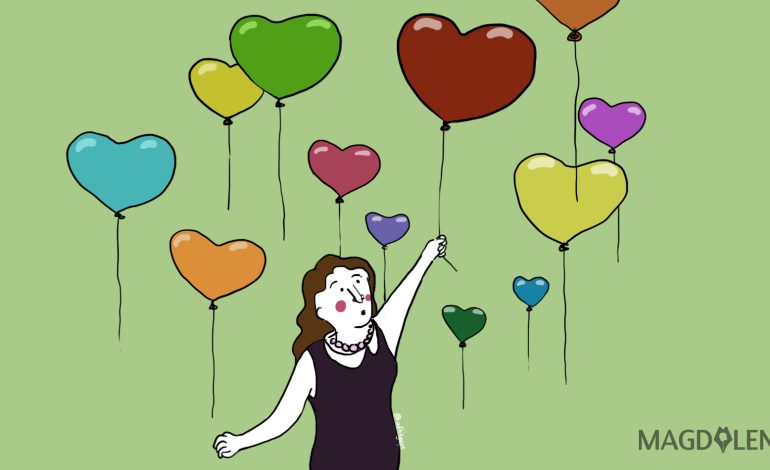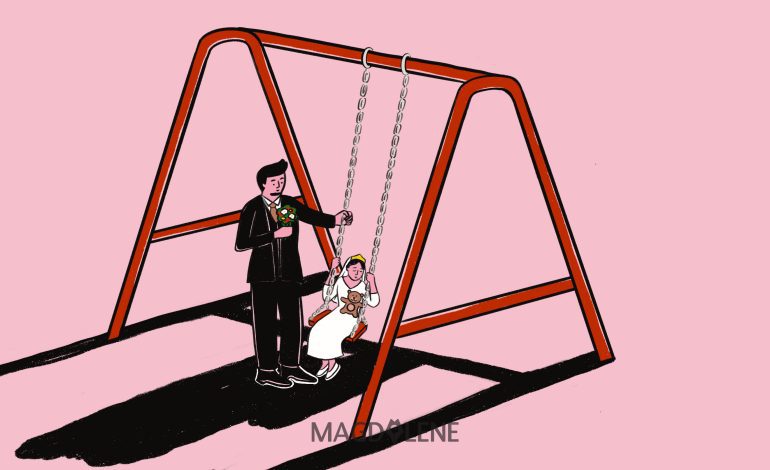How I Embrace Chaos and Let Go of the Illusion of Perfection

In a world obsessed with the illusion of perfection, it is hard to feel at ease and accepted.
I grew up in a strict Christian household which upholds the dogma that human beings are perfect, and that you will be condemned to an eternal hell for your sins after you die. I also attended Catholic schools for six years. Living in such an environment can be a living hell if you are queer like me. I am ashamed of my own traumatic background.
Yet, my background helped me become aware of the brokenness of life from such a young age. I could easily see where images of perfection did not match with the realities of everyday life. The elders in my family always preached that it was important to love one another, yet they quarreled violently all the time. They preach compassion but they are also very punitive.
They are unforgiving because they fail to see that life by definition is a balled mass of various paradoxes. We are torn between the need for self-promotion and the need for connection. We are capable of both cruelty and compassion. We are the hunter and the hunted, the victor and the victim – all at the same time and all at once.
By definition, we are very flawed, dualistic creatures living in a highly messy interdependence. There is no way to make perfection out of life, since how can you expect perfection out of this chaotic and complex interdependence?
Also read: How My Insecurities Worsen During the Pandemic
Recently amid the gloomy COVID-19 pandemic, I’ve been writing lots of commercial copies for the media company I’m working for. Thinking about it, I should be grateful because these ads keep us alive and allow me to receive my paycheck.
Truth is, I felt pained whenever I was writing about the “perfect happiness” that these products promise their buyers. They espouse images of “perfect families” and “perfect romance.” Again, we know that families and romantic relationships are not as paradisiac as society wants us to believe. In actuality, they are more like hornets’ nests that require constant sustenance and cultivation. Yet these brands want to convince you that you can achieve harmony in your relationships simply by buying their products.
Constantly shoving images of perfection and conditional happiness down consumers’ throats seem cruel, especially amid the psychological, economic and political fallout induced by the pandemic. Maybe you are already familiar with just how many people are suffering from anxiety or clinical depression, and even committing suicide because they feel lousy compared to these puffed images of perfection?
Just by chance, while being alienated by the commercial copies I was writing during the day, at night I was reading an anthology called The Ordinary Chaos of Being Human: Tales from many Muslim Worlds (Penguin Southeast Asia, 2019). The non-fiction anthology comprises writings from people in various Muslim worlds, among others: Yemen, Iraq, Bangladesh and the Muslim parts of the Philippines.
What has blown me away about the anthology is that it allows its writers to boldly convey their life experiences as they are, all in life’s beauty and terror. Whether you are talking about a Nigerian Muslim woman who is falling in love, with all the romantic episodes but also the communications breakdowns that often come with falling in love (“Radical Muslim in Love” by Wardah Abbas), or about a manipulative, heartbreaking love triangle involving Iraqis and an American. Also no less moving is Criselda Yabes’ “From Sulu, a Farewell to Dad”, about a Filipina journalist’s attempt to reconnect with her dad by covering a war-torn province that her dad had so loved.
Also read: Social Distancing? It’s a Lifetime Pathway for Queers Like Me
By reading these stories of places I have never visited and the people I have never met, I feel understood and I find my own struggles and triumphs, happiness and sorrows, love and grief reflected back by these characters. A grounding and liberating experience I need to reconcile with my own sense of alienation from the consumer culture and my family’s Christian religious dogmas.
By no means the reading experience has been smooth and easy. One story, called “Ami beshi Kotha Boli” (I talk too much) by Lydia Abedeen shook me to the core. I could easily relate to the experience of women who were blamed by their own families for the sexual violence they endured, and who ended up perpetuating the cycle of violence by always falling in love with abusive men. Instantly, I had a flashback of my adolescence when I was physically assaulted by my schoolmates, and my family instead blamed me for being a “pansy,” suggesting that I deserved such treatment.
Yet, you have to go endure the pain in order to heal, right? After I reconnected with my adolescent pain, I discovered that the pain has tenderly transformed into some sort of understanding.
“The Sufi and the Architect” by H. Masud Taj was also a balm for my pain. As a journalist who often depends on kindness from strangers during business trips locally and abroad, I know how new opportunities and human connections often come to us in the most unexpected places and circumstances. Love and compassion can grow even in the midst of pain, violence and trauma.
Furthermore, love and happiness is not a state; you cannot achieve them simply by buying a new car or a new smartphone. You have to work proactively to cultivate love and connection, not in spite of the chaos all around you, but because of them. This is where your wounds and flaws can actually be a gate through which you give and receive love.
Reading the anthology makes me feel forgiven and accepted. It helps me shed the shame out of my own traumatic background. Who, after all, has not been traumatized by the messiness of life, as the anthology’s writers have demonstrated? They have also helped me erase the perfect family fantasy portrayed in the commercial copies I had written.
You do not have to be perfect to love and be loved. So, “Ring the bell that still can ring. Forget your perfect offering. There is a crack in everything, that’s how the light gets in,” to quote Leonard Cohen. Remember this whenever you are sick of religious dogmas or commercal propagandas selling you images of perfection.






















